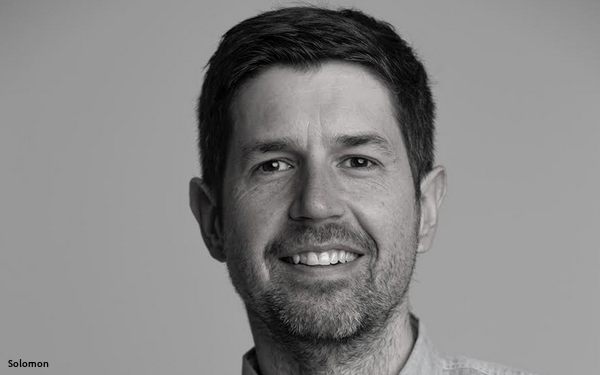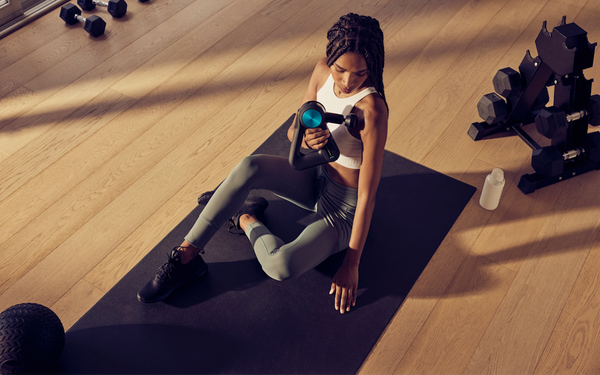
What a delicious
pitch,” exclaimed one of my colleagues when we received a spiel to interview Therabody’s John Solomon, described as “a CMO of the future.”
Taking the bait, I asked
Solomon right off the bat if “CMO of the future” described him.
“That’s a big term,” the chief marketing officer replied. “The CMO of the future, whether I
would fall into that or not, is an intersection of creativity, data -- and really understanding and being close to the business.”
Solomon’s 15-year marketing career includes global
positions at Beats by Dre and Apple en route to joining Therabody -- maker of Theragun massage products and other therapeutic devices -- two years ago.
Solomon says CMOs in the past
“maybe understood the brand-building or the story-telling side of things, but they didn’t necessarily have the understanding of the digital or data side, and how that really drives
business day-to-day.”
His Apple stint gave him experience in the health and wellness space, since he was part of the team that launched the Fitness+ service a couple of years back.
“We all learned in COVID that you don’t necessarily have to go to the gym or to a class. You could do so much at home with only have a few minutes here and there.”
Now, at
Therabody, “we think a lot about how we help you do things quicker and more effectively. Not everyone has time to go out and get a 20-, 30- or 60 minute massage, but you can get really
similar benefits with two to five minutes of the Theragun.”
And the consumer trend to tighten purse strings could benefit Therabody: “If they can’t afford a massage or other
things, our products can meet a lot of their needs.”

Solomon says that Apple also taught him the value of using an ad agency that can work across “multiple different disciplines.”
In Therabody’s case, Solomon
retained Stagwell’s Forsman & Bodenfors, which has been on board since January working in such areas as packaging, brand architecture and design, and come September will debut its first ad
campaign for the brand in support of several new product launches.
Before then, Therabody will be doing lots of outreach around the month-long FIFA Women’s World Cup that starts July 20.
U.S. team member Crystal Dunn and former star Sam Mewis are Therabody endorsers.
You can expect the World Cup effort to involve what Solomon describes as marketing’s current
“ability to interact with the customer across so many difference touchpoints.”
Citing the industry’s “rapid shift into online and digital communications,” he
compares that with an earlier soccer-related campaign he was involved with less than 10 years ago: a World Cup effort by Beats by Dre.
“We launched a five-minute film,” he recalls,
due to the then-prevailing attitude that it “was easy to captivate an audience through a compelling story….While I still think that’s true today, consumers are having so much thrown
at them now, there’s just content overload. So it’s a lot harder to captivate that audience.
“That’s really what’s changed a lot -- having the ability to interact
with the customer across so many difference touchpoints now.”
For a health company like Therabody -- and make no mistake, Solomon wants the brand to evolve into the wellness space from
the tech performance space -- customer communications gets even more complicated.
“We’re dealing with people, we’re dealing with people’s bodies,” he says.
“People are very different, they’re in different life stages.”
He gives himself as an example: “I got introduced to Therabody and the Theragun as a really active
cyclist, and I wanted to be able to recover quickly so I could continue riding.
“Now, being a new father with a 13-month-old, I’m dealing with backaches and not sleeping as well.
I’m looking for different types of things.” To get better sleep, for example, he’s using Therabody’s Smart Goggles.
“People are busier than ever and they’re
really trying to figure out how they fit health and wellness into their really busy lives,” Solomon says. “Technology is now able to do that.”